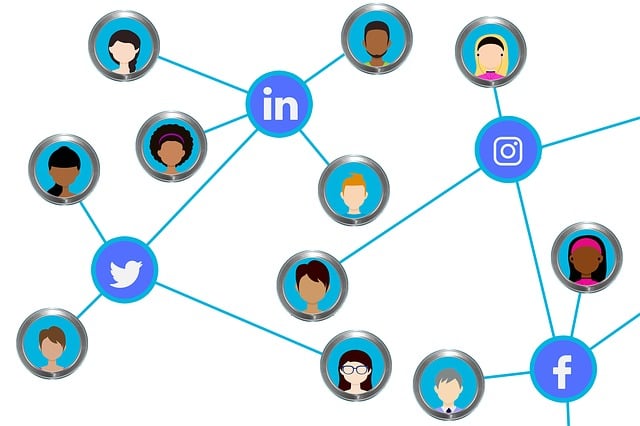The digital age has seen a surge in demand for remote psychiatric evaluations, driven by factors like the shift to online therapy platforms and the impact of global health crises on mental health. Younger generations' comfort with technology has led to increased adoption of digital healthcare solutions, making online therapy platforms convenient and accessible alternatives that expand access to quality mental health services globally. These platforms leverage video conferencing, secure data storage, and specialized assessment tools to ensure private and effective care. While challenges in data security and communication exist, remote psychiatric evaluations through online therapy platforms have proven successful in urban and rural areas, demonstrating faster diagnoses and improved patient outcomes. The future holds promise for further innovation, with AI-driven features and integration of wearable health devices expected to enhance the accessibility and efficiency of psychiatric care.
In today’s digital era, remote access to psychiatric evaluations is becoming increasingly crucial. The growing need for virtual care, driven by advancements in technology and changing healthcare preferences, has led to a surge in the popularity of online therapy platforms. This article explores the benefits, key features, privacy concerns, best practices, challenges, and future prospects of remote psychiatric services. Discover how these innovative solutions are revolutionizing mental healthcare accessibility.
The Growing Need for Remote Psychiatric Evaluations

In today’s digital age, the demand for remote psychiatric evaluations is on the rise, driven by a multitude of factors. The global shift towards online therapy platforms has opened doors for individuals seeking mental health support who may face barriers such as geographical limitations or social anxiety when accessing traditional in-person services. This trend is especially prominent among younger generations who are more comfortable with technology and often prefer digital solutions for various healthcare needs.
The pandemic further accelerated this need, highlighting the importance of remote care options for maintaining mental well-being. As people continue to embrace online therapy platforms, the convenience and accessibility of remote psychiatric evaluations offer a viable alternative, ensuring that quality mental health services are available to a broader audience without the constraints of physical locations.
Benefits of Online Therapy Platforms in Mental Healthcare

The integration of online therapy platforms has revolutionized mental healthcare, offering numerous benefits that bridge geographical gaps and enhance accessibility. One of the most significant advantages is the convenience it provides for both patients and therapists. Through secure video conferencing tools, individuals can access evaluations and therapy sessions from the comfort of their homes, eliminating the need for travel and fostering a more inclusive environment. This flexibility is particularly beneficial for those with limited mobility or residing in remote areas, ensuring they receive the support they need without barriers.
Moreover, online therapy platforms promote increased availability and efficiency. Patients can schedule appointments at their convenience, reducing wait times and accommodating busy schedules. Simultaneously, therapists gain the ability to manage a larger caseload, as they are not constrained by physical limitations. This shift towards digital mental healthcare has proven invaluable, especially during global health crises, enabling continuous care and support for those in need.
Key Features and Tools for Effective Remote Assessments

Remote psychiatric evaluations are facilitated by a range of digital tools and features that ensure effective and efficient care. Online therapy platforms, for instance, employ video conferencing to enable face-to-face interactions between patients and healthcare professionals, bridging the gap physically even when miles apart. These platforms often integrate chat functions, allowing for instant messaging and quick updates between sessions.
Furthermore, they utilize secure data storage and encryption protocols to safeguard sensitive patient information. This is crucial in maintaining privacy and confidentiality, key aspects of fostering trust in remote care. Many platforms also offer a variety of assessment tools tailored for online settings, such as standardized questionnaires and scaled measures, which help in accurately diagnosing and monitoring mental health conditions.
Ensuring Privacy and Security in Digital Psychiatry

In the realm of digital psychiatry, where online therapy platforms facilitate remote access to evaluations and treatments, privacy and security are paramount. As more individuals opt for virtual care, protecting sensitive patient data becomes an uphill task. Encryption technologies, secure login protocols, and regular system audits are essential tools in safeguarding confidential information exchanged during therapeutic sessions.
The transition to digital settings necessitates a robust framework to counter potential cyber threats. Patients must trust that their personal details, medical history, and session transcripts remain inaccessible to unauthorized personnel. Online therapy platforms have the responsibility to implement stringent measures, stay updated with security best practices, and educate users on secure online interactions to ensure a safe environment for psychiatric evaluations and treatment.
Best Practices for Conducting Virtual Psychiatric Evaluations

Conducting virtual psychiatric evaluations through online therapy platforms requires a structured approach to ensure accuracy and patient safety. Best practices include establishing a secure, private, and distraction-free environment for the evaluation. Therapists should verify the patient’s identity and ensure they are in a safe location before proceeding. Utilizing video conferencing tools with end-to-end encryption ensures confidentiality. Additionally, therapists must maintain eye contact and use non-verbal cues to build rapport, despite the remote nature of the session.
Effective communication is key during virtual psychiatric evaluations. Therapists should encourage open dialogue, allowing patients to express their thoughts and feelings openly. It’s crucial to ask clear and concise questions, providing patient responses ample time for reflection and elaboration. Note-taking by both the therapist and patient can aid in capturing relevant information. Regular breaks during longer sessions can help maintain focus and prevent burnout for both parties, ensuring a comprehensive and productive evaluation process.
Challenges and Limitations: What to Expect

Remote access to psychiatric evaluations through online therapy platforms offers a convenient solution for many, but it’s not without challenges and limitations. One significant hurdle is maintaining the privacy and security of sensitive patient information. As digital platforms become more accessible, so do potential risks of data breaches or unauthorized access. Ensuring these online spaces meet robust security standards is paramount to protect patients’ confidentiality.
Additionally, the effectiveness of remote evaluations depends heavily on clear communication between patients and healthcare providers. Misinterpretations or limitations in non-verbal cues can lead to misunderstandings, impacting the accuracy of assessments. While video conferencing tools have improved this aspect, they cannot replicate the nuanced interactions possible during in-person visits. Therefore, patients should expect a different dynamic and remain open to adjusting their expectations when engaging in online therapy sessions.
Case Studies: Successful Implementation Stories

Remote access to psychiatric evaluations has gained significant traction in recent years, largely facilitated by advancements in online therapy platforms. Case studies from various regions offer compelling success stories that highlight the effectiveness and accessibility of this approach. For instance, a study conducted in urban areas with diverse populations showed that virtual assessments led to faster diagnoses and more efficient treatment planning compared to traditional in-person visits. Patients reported higher levels of comfort and reduced travel stress, indicating improved patient satisfaction.
Another successful implementation was observed in rural communities where limited access to mental health services had long been a challenge. Online therapy platforms enabled psychiatrists to reach remote areas, providing much-needed evaluations and consultations. This not only expanded coverage but also led to better outcomes as patients could receive timely interventions without the barriers of distance and travel. These examples underscore the potential of digital solutions in transforming psychiatric care, making it more inclusive and efficient.
The Future of Remote Access to Psychiatric Services

The future of remote access to psychiatric evaluations lies in the hands of innovative online therapy platforms. These digital tools are revolutionizing mental health care, breaking down geographical barriers and making specialized services more accessible. With advancements in technology, video conferencing, and secure data transmission, individuals can now receive professional assessments and treatment from the comfort of their homes. This shift towards remote access not only benefits patients by increasing convenience but also expands reach to underserved communities, ensuring better mental health outcomes for all.
As online therapy platforms continue to evolve, we can expect enhanced features such as artificial intelligence-driven diagnosis support, personalized treatment plans, and seamless integration with wearable health devices. Such developments promise a more tailored and efficient approach to psychiatric care. Additionally, the growing acceptance of remote therapy among both patients and healthcare providers indicates a promising future where mental well-being is prioritized without the constraints of physical locations.
